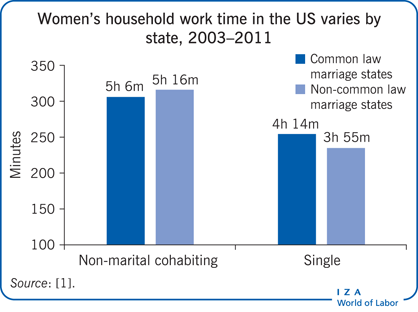Elevator pitch
In addition to regular marriage, Australia, Brazil, and 11 US states recognize common law (or de facto) marriage, which allows one or both cohabiting partners to claim, under certain conditions, that an informal union is a marriage. France and some other countries also have several types of marriage and civil union contracts. The policy issue is whether to abolish common law marriage, as it appears to discourage couple formation and female labor supply. A single conceptual framework can explain how outcomes are affected by the choice between regular and common law marriage, and between various marriage and civil union contracts.
Key findings
Pros
The availability of common law marriage in a jurisdiction is associated with lower teenage birth rates, especially among teenagers younger than 18 and among black teenagers.
When common law marriage is available married men participate more in the labor market.
The availability of common law marriage seems to be associated with more leisure time for married and cohabiting women, who spend one to two hours less per week in work outside the home.
Cons
Couple formation among college-educated men and non-college-educated women is discouraged when common law marriage is available.
The availability of common law marriage in the US and marriage under a community property contract in France discourages labor market participation of married and cohabiting women.
Where common law marriage is available, married and cohabiting women tend to spend more time in household work.
